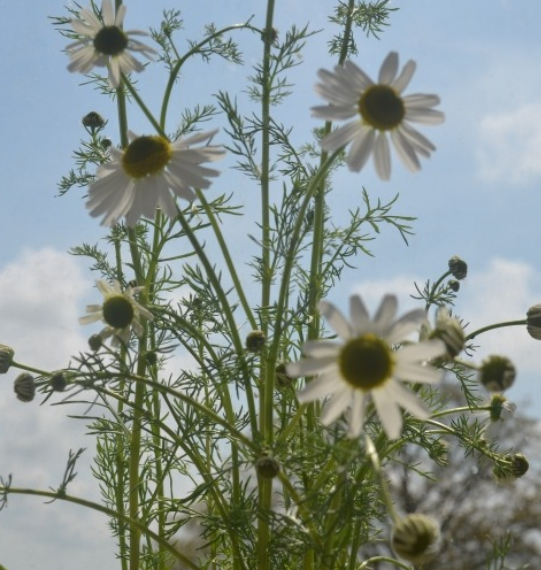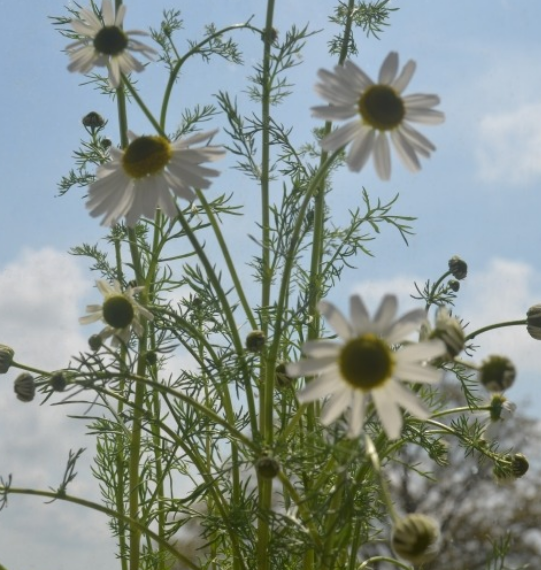Chamomile
Chamomile
Packet Size: 100 seeds
Couldn't load pickup availability
The daisy like flowers of Chamomile Matricaria recutita are used for teas. It is reported to be a good companion plant to onions and is said to improve the crop yield. This variety is also known as German Chamomile: it has a fragrance that conjures fresh straw and is often used for its aromatic properties. Annual.
This variety is part of our naturally nurtured range, the seed comes from an organic source
🌱 Seasonal Growing Guide
SPRING: surface sow using a grit/peat compost mix, then lightly cover with perlite. Provide bottom heat until germinated. Pot on until large enough to harden off, plant out after all frost danger has passed.
SUMMER – don’t let plants dry out.
AUTUMN – cut back to encourage good new growth and give them a final feed.
WINTER – dig up old plants
📌USES
EDIBLE:
- The leaves are can be made into a tea infusion - although Peter Rabbit was given Chamomile tea, excessive amounts are not recommended.
AROMATIC
- A very good choice for adding to pot pourri or using in a herb pillow
- German Chamomile has a fragrance that conjures fresh straw
OTHER
- Please Note: we do not promote the medicinal use of plants – guidance and information should be sought elsewhere.
- German Chamomile is reported to have medicinal properties
- Medicinal uses include calming and soothing skin, maintaining skin health and promoting skin healing. Also an aid to digestion and support of IBS. Said to have anti-inflammatory, pain relieving, antibiotic, anti-bacterial, and sedative properties. Calming for menstrual and menopausal difficulties.
- German Chamomile contains the chemical chamazulene, this gives the essential oil its deep blue color
CAUTION: you should not consume Chamomile Matricaria recutita (also known as German Chamomile) whilst pregnant

Collapsible content
Sowing
- Mar
- Apr
- May
Harvesting / Flowering
- May
- Jun
- Jul
- Aug
- Sep
- Oct

